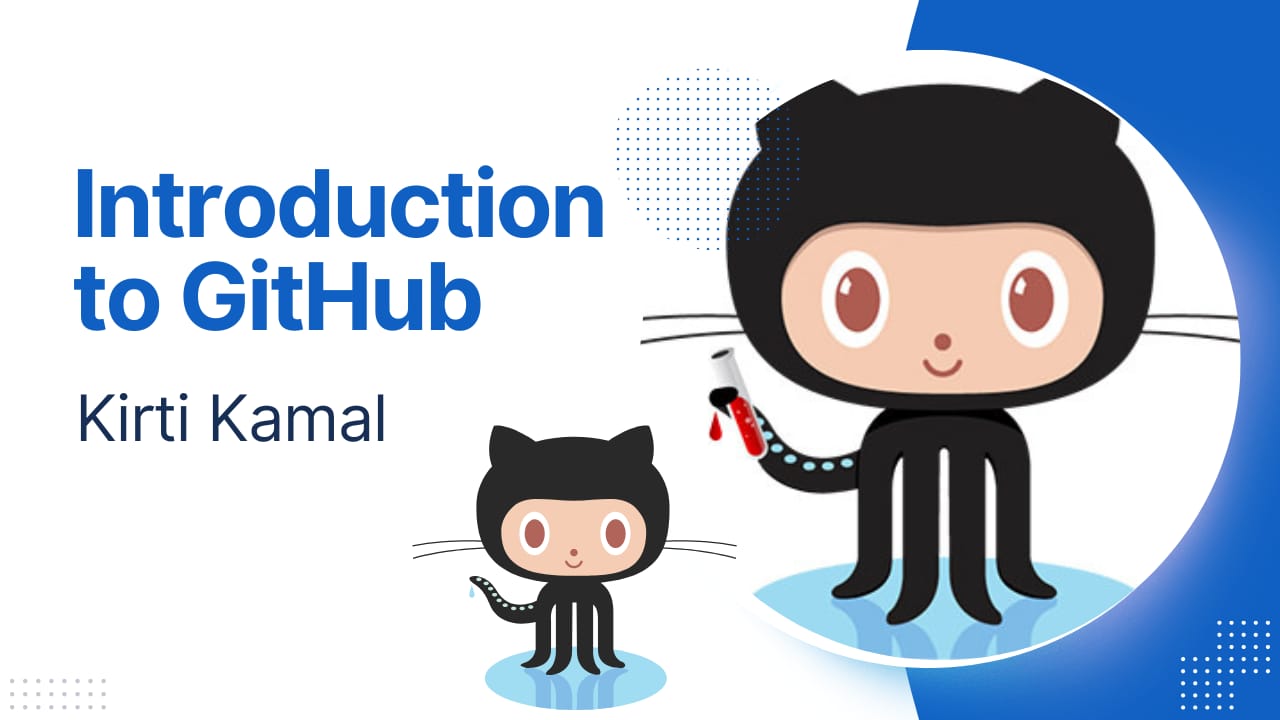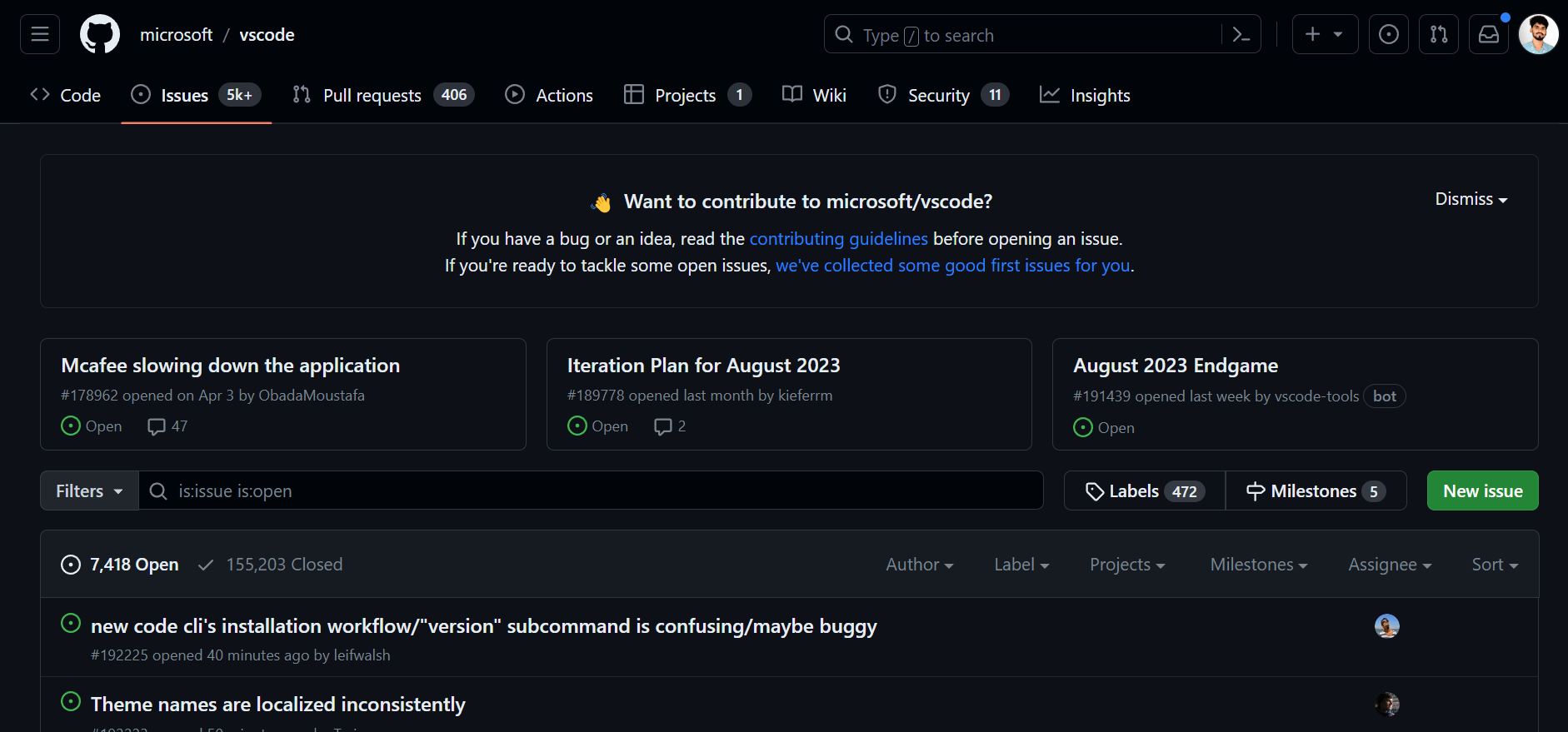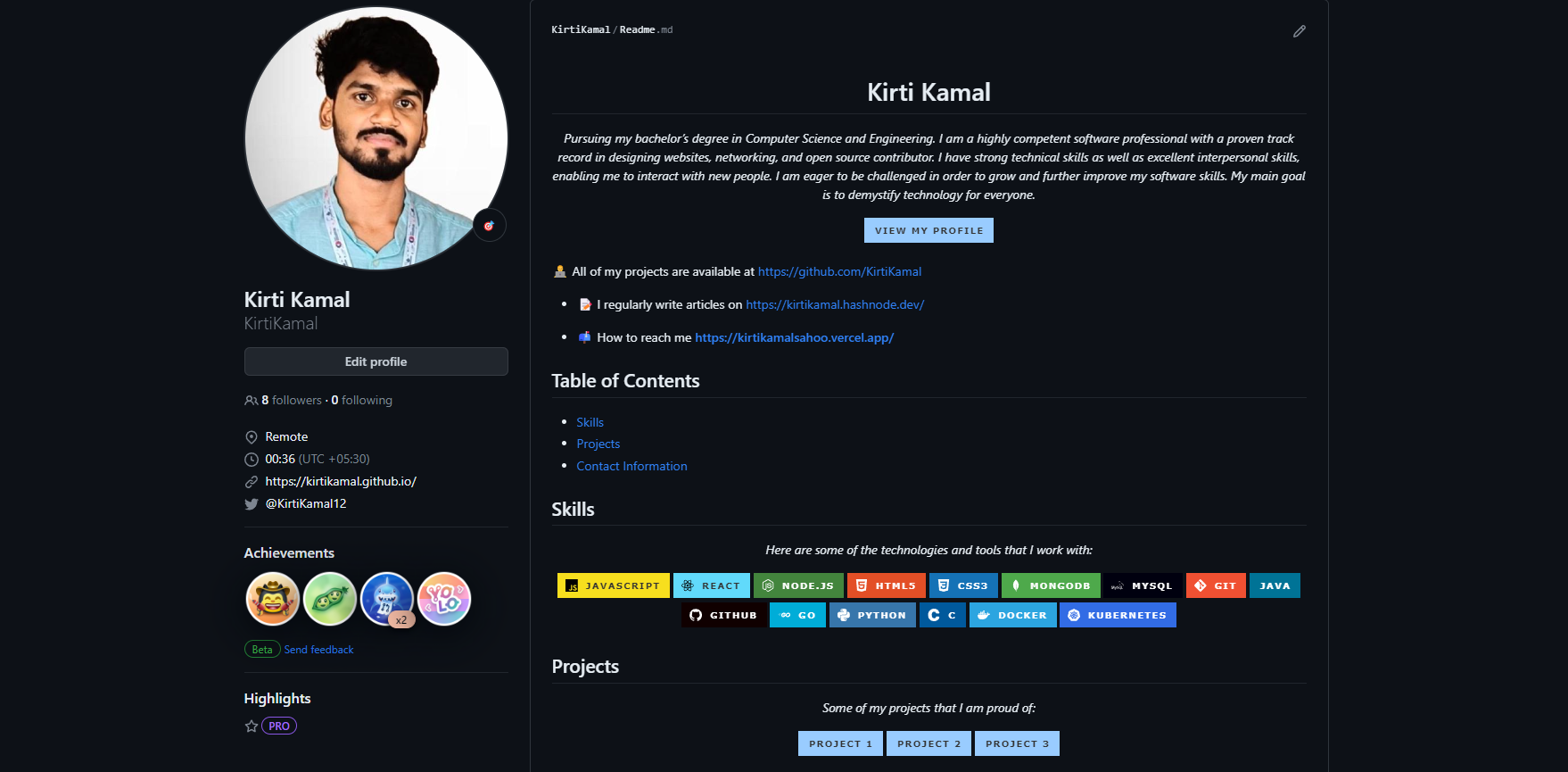Introduction to GitHub
 KIRTI KAMAL
KIRTI KAMAL
What is GitHub?
GitHub is an online platform that enables software developers to store and manage their code in the cloud. It facilitates collaborative work, allowing multiple folks to work on the same project simultaneously and track changes made to the code over time.
GitHub has gained immense popularity in the software development community, especially for open-source projects, as it encourages individuals to contribute, report bugs, discuss new ideas, and explore new tools.
The Power of GitHub for Developers
GitHub is not just a code repository; it's a comprehensive platform that offers a wide range of features and tools to streamline the software development process. Let's delve deeper into some of the key aspects that make GitHub an indispensable tool for developers:
Version Control
At the core of GitHub is Git, a distributed version control system that allows developers to track changes to their code. With Git, you can easily create branches to work on new features or bug fixes without affecting the main codebase. GitHub provides a user-friendly interface for managing these branches, making it simple to merge changes back into the main project when they're ready.
Collaboration and Teamwork
GitHub is designed to facilitate collaboration among developers, whether they're working together in the same office or remotely from different parts of the world. It offers features like pull requests, which allow developers to propose changes, have them reviewed by peers, and discuss improvements before merging them into the main codebase. This process encourages transparency and maintains code quality.
Issue Tracking
GitHub's issue-tracking system is a powerful tool for managing and prioritizing tasks, bugs, and feature requests. Developers can create issues, assign them to team members, label them for easy categorization, and link them to specific code changes. This makes it easier to stay organized and ensure that nothing falls through the cracks during development.

Continuous Integration and Deployment (CI/CD)
GitHub provides integration with various CI/CD tools and services, allowing developers to automate the testing, building, and deployment of their applications. This ensures that code changes are thoroughly tested and deployed to production environments quickly and efficiently. Popular CI/CD platforms like Travis CI and CircleCI can be easily integrated with GitHub repositories.
Community and Open Source
GitHub has become a central hub for open-source development. Thousands of open-source projects are hosted on the platform, making it easy for developers to contribute to projects they are passionate about. GitHub fosters a sense of community, where developers can collaborate, share knowledge, and learn from one another.
Documentation and Wikis
In addition to code, GitHub provides tools for creating and maintaining project documentation. You can write detailed README files, wikis, and documentation pages right alongside your code. Well-documented projects are more accessible to other developers, making it easier for them to understand and contribute to your work.

Security and Access Control
GitHub offers robust security features, including access control, code scanning, and vulnerability alerts. Developers can control who has access to their repositories and monitor security issues in real time. GitHub's security features help protect code from unauthorized access and vulnerabilities.
Integrations and Extensions
GitHub's ecosystem extends beyond its core features. It offers a marketplace where you can find a wide range of integrations and extensions to enhance your development workflow. Whether you need project management tools, code review assistance, or analytics, there's likely an integration that suits your needs.
Learning and Growth
GitHub is not only a platform for seasoned developers but also a valuable learning resource for those just starting in software development. By exploring open-source projects, contributing to them, and participating in discussions, developers can gain practical experience and learn from others in the field.
In conclusion, GitHub has revolutionized the way developers collaborate and manage their code. It's a platform that empowers individuals and teams to build better software, fosters a sense of community, and provides essential tools for modern software development. Whether you're a novice programmer or an experienced developer, GitHub is an invaluable resource on your journey to creating high-quality software.
So, whether you're a developer looking to share your work with the world, a team working on a complex project, or someone eager to learn and contribute to open source, GitHub is your go-to platform for all things code-related. Embrace the power of GitHub, and watch your coding projects reach new heights of productivity and collaboration.
#decodedevs
#decodedevs
Subscribe to my newsletter
Read articles from KIRTI KAMAL directly inside your inbox. Subscribe to the newsletter, and don't miss out.
Written by

KIRTI KAMAL
KIRTI KAMAL
Kirti Kamal is a tech enthusiast and visionary community leader who is pursuing a Bachelor of Technology in Computer Science and Engineering at Trident Academy of Technology. As a Beta Microsoft Learn Student Ambassador, Kirti helps fellow students learn new technologies and develop their career skills for the future. Kirti also leads the Trident ACM Student Chapter and the Trident Hackathon Club, organizing engaging workshops, events, and hackathons for the tech community. With a strong dedication to open-source, Kirti has established an inclusive platform to guide newcomers through their tech journey. Kirti has also acquired multiple certifications and skills in DevOps, Networking, Linux, Docker, and Frontend Development, demonstrating technical expertise and a passion for continuous learning. Kirti strives to inspire others to explore, innovate, and excel in the ever-evolving realm of technology, by blending leadership skills, collaboration, and creativity.